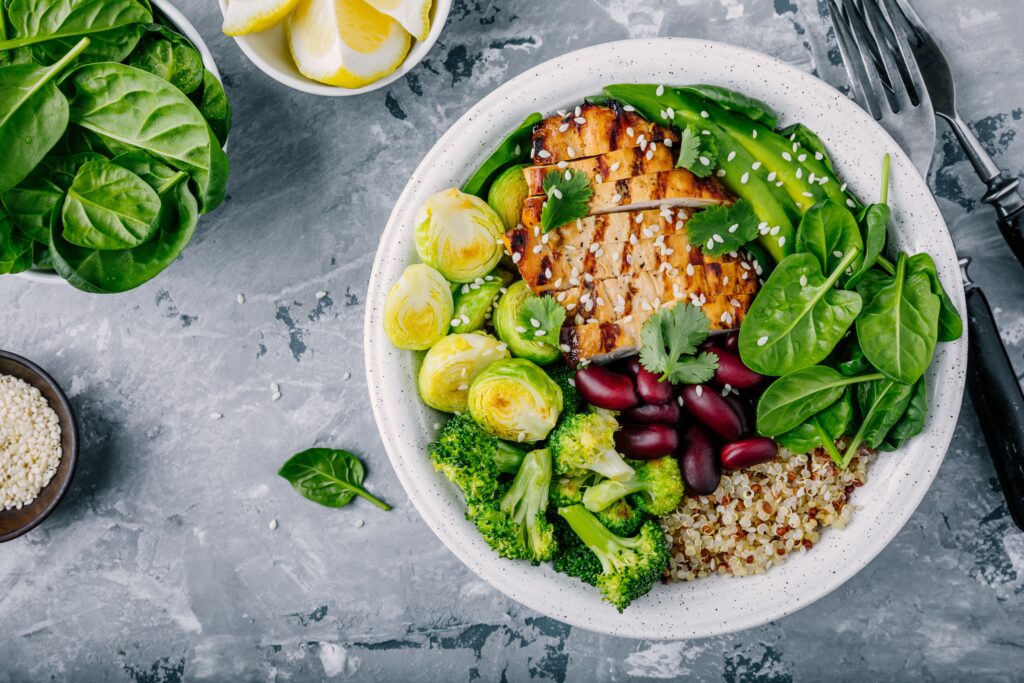
Date published
May 6, 2025
With so much conflicting information out there, healthy eating can feel overwhelming. One day a food is “good,” the next it’s not. On top of that, clever marketing and misleading packaging can make ultra-processed foods look healthy when they’re anything but.
So how do we get back to basics? It starts by focusing on whole, minimally processed foods and building a balanced plate.
1. Fruits and Vegetables
Aim for 5 servings a day, around 2 fruits and 3 vegetables. Choose mostly non-starchy veggies like leafy greens, peppers and broccoli. The more colourful and varied your produce, the better for your gut and overall health.
2. Protein
Protein helps with everything from healing to hormone production. You can get it from both animal (meat, fish, eggs, dairy) and plant sources (tofu, lentils, nuts, seeds). Plant-based? Just mix your protein sources to ensure you’re getting all essential amino acids.
3. Whole Grains
Despite some bad press, whole grains are packed with fibre, B vitamins, and minerals. Try oats, barley, millet, or quinoa. Aim for 2–3 servings a day.
4. Healthy Fats
Fat supports brain health, hormones, and cell function. Focus on unsaturated fats like olive oil, avocados, and fatty fish. Limit saturated fats and avoid trans fats (often found in packaged and fried foods).
5. Fermented Foods
Fermented foods like yogurt, kefir, sauerkraut, and kombucha support gut health and digestion. Include small amounts daily if you can.
Shop Balanced Plate Essentials
Try to follow the Canada’s Food Guide model:
When you’re pressed for time, these can help:
Ultra-processed foods are low in nutrients, high in sugars and unhealthy fats, and often packed with preservatives. Regularly eating them has been linked to increased risks of obesity, heart disease, and even early death. Read labels carefully, and choose whole foods when you can.
What you eat is important but how you eat matters too. Stress and distraction can impair digestion. Practice mindful eating:
Before making major changes to your diet or adding new supplements, check in with your doctor or dietitian to ensure it’s the right fit for your health and lifestyle. Our in-store Natural Choice advisors are also here to help you get started on your balanced plate journey. Connect with one today!
Shop Now